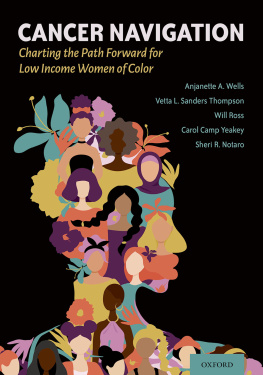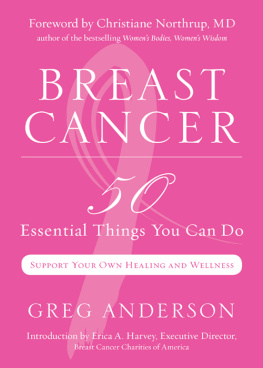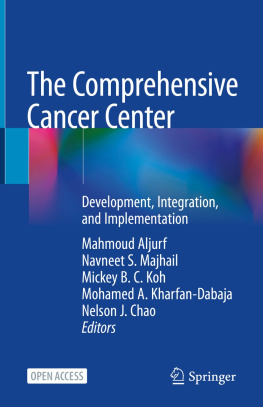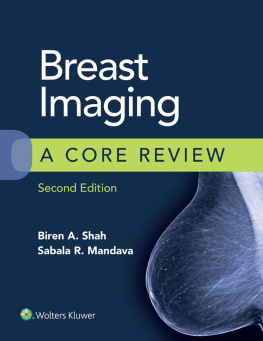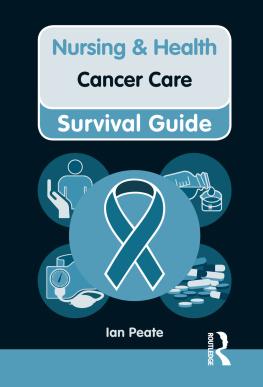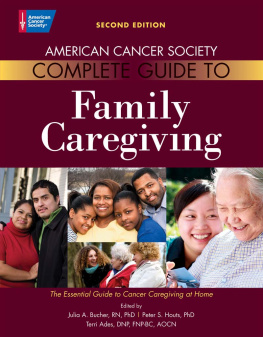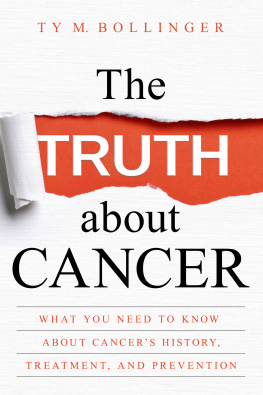Cancer Navigation

Oxford University Press is a department of the University of Oxford. It furthers the Universitys objective of excellence in research, scholarship, and education by publishing worldwide. Oxford is a registered trade mark of Oxford University Press in the UK and certain other countries.
Published in the United States of America by Oxford University Press
198 Madison Avenue, New York, NY 10016, United States of America.
Oxford University Press 2022
All rights reserved. No part of this publication may be reproduced, stored in a retrieval system, or transmitted, in any form or by any means, without the prior permission in writing of Oxford University Press, or as expressly permitted by law, by license, or under terms agreed with the appropriate reproduction rights organization. Inquiries concerning reproduction outside the scope of the above should be sent to the Rights Department, Oxford University Press, at the address above.
You must not circulate this work in any other form and you must impose this same condition on any acquirer.
Library of Congress Cataloging-in-Publication Data
Names: Anjanette A. Wells, author.
Title: Cancer navigation : charting the path forward for low income women of color /
Anjanette A. Wells, Vetta L. Sanders Thompson, Will Ross, Carol Camp Yeakey, Sheri R. Notaro.
Description: New York, NY : Oxford University Press, [2022] | Includes
bibliographical references and index.
Identifiers: LCCN 2021034564 (print) | LCCN 2021034565 (ebook) |
ISBN 9780190672867 (paperback) | ISBN 9780190672881 (epub) |
ISBN 9780197626191
Subjects: LCSH: Cancer in womenSocial aspects. | Cancer in
womenPrevention. | Cancer in womenEconomic aspects. | Poor
womenMedical careUnited States. | Health literacy.
Classification: LCC RC281.W65 A55 2022 (print) | LCC RC281.W65 (ebook) |
DDC 362.19699/40082dc23
LC record available at https://lccn.loc.gov/2021034564
LC ebook record available at https://lccn.loc.gov/2021034565
DOI: 10.1093/OSO/9780190672867.001.0001
This volume is dedicated to those marginalized women of color, at risk for and suffering from the ravages of cancer, and to those who provide support and comfort for them.
Contents
No volume is written alone. First, the co-authors wish to acknowledge the first author, Professor Anjanette A. Wells, whose original work on cancer prevention provided the intellectual impetus for this project. Second, a special thank you to coauthors Vetta Sanders Thompson, Will Ross, Carol Camp Yeakey, and Sheri Notaro, who worked collaboratively and seamlessly to break down academic disciplinary boundaries and foster cross-disciplinary and interprofessional dialog. This book is a tangible result of these collaborations. Thank you to Andy Meade (from Meaden Creative), Richard May, III, Nicole Volpenhein, and Nadia Alam for your creativity in designing the graphics and illustrations with so much sensitivity and rich complexity; we sincerely appreciate your beautiful and thoughtful designs. Similarly, we thank our students, in particular Angela Bird, Nadia Alam, Jossie Jones, and Lauren Styczynski, for their assistance assembling data, editing, and compiling references. Special thanks to Hanlin Zhou for the careful attention in researching and generating the GIS mapping. We also need to acknowledge the Oxford University Press editorial staff, including Dana Bliss and his team; thank you for your continued patience, confidence, comprehensive vision, and guidance through all aspects of this publication process. Further, we owe a tremendous debt of gratitude to the marginalized women of color in our study who allowed us into their lives at a most vulnerable and challenging time. We applaud you for your courage and strength. It is to you that this volume is dedicated. Last but not least, we wish to thank our close friends and infinitely patient families who have endured our need to spend time away from gatherings on revising drafts and setting up conference calls in an attempt to capture the right words to further serious discussion on such timely and sensitive subject matter. Of course, the final product is our own creation and we accept full responsibility for its contents. To all healthcare providers, we trust that we have provided tools and strategies that can be useful in your passionate and compassionate work to improve health equity for low-income women of color.
While we have attempted to provide and illuminate pathways forward for low-income women as they navigate the travails of cancer, we can only hope that our work is of some small comfort to them and to those who care for them.

